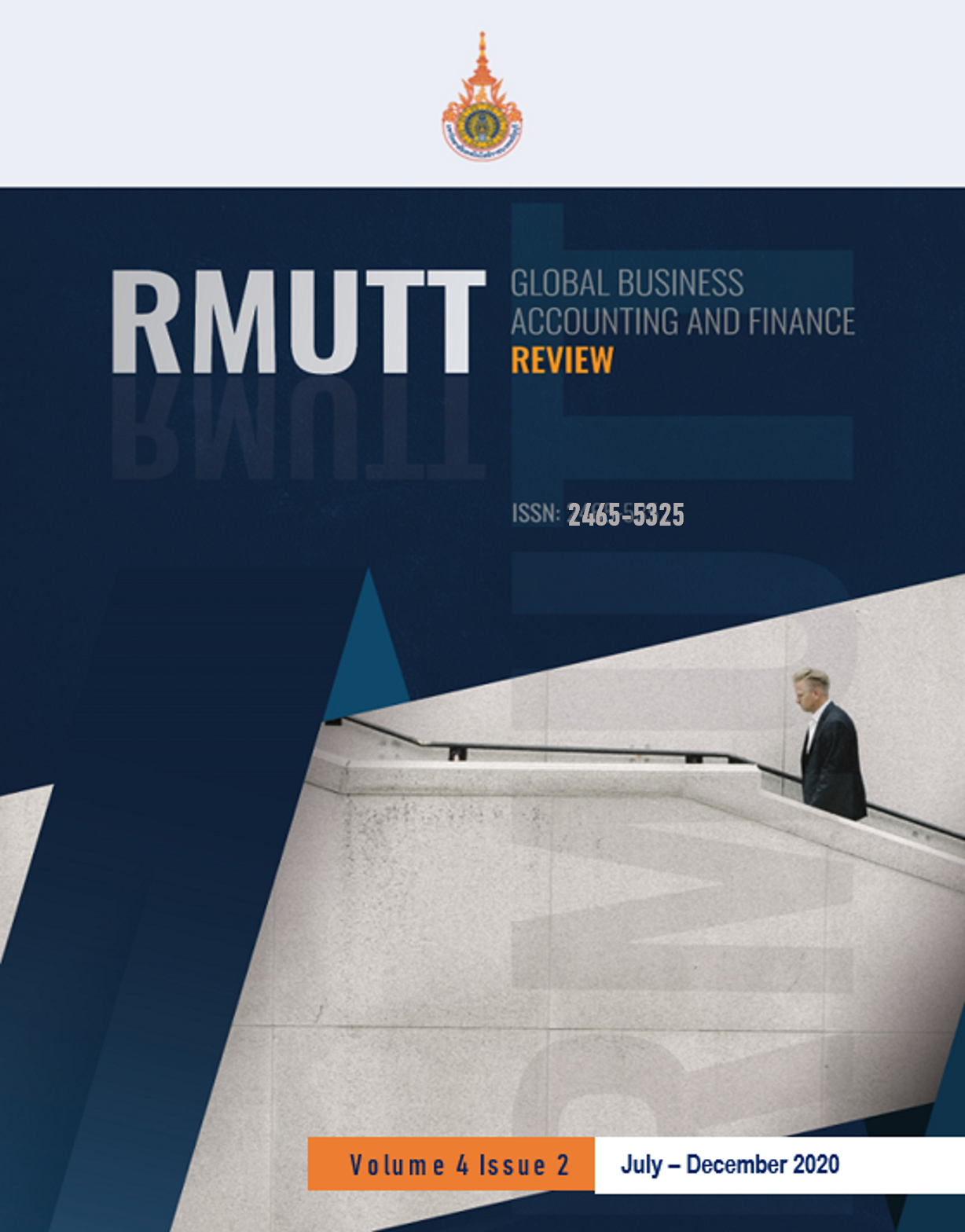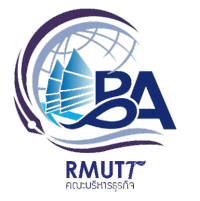THE EFFECT OF DEMOGRAPHIC FACTORS ON PEOPLE’S MOTIVATION IN EXECUTING HOUSEHOLD ACCOUNTING
Keywords:
Demographic Factors, Motivation, Household Accounting Execution, Governmental SupportAbstract
This research aimed at 1) studying the people’s demographic factors and motivation for household accounting execution and 2) comparing the motivation in household accounting execution classified by people’s demographic factors in Thanyaburi District, Pathum Thani province. The samples were of 137 people living in Thanyaburi municipality, Pathum Thani. The data collection employed questionnaires with purposive sampling and convenience sampling method. The statistics used in data analysis included descriptive statistics covering frequency, percentage, mean, and standard deviation and inferential statistics covering the Independent Sample t-test and One-Way ANOVA at the statistical significance level of 0.05.
The results showed that most respondents were female, aged 20 - 29 years old, were student, graduated from bachelor’s degree, earned between 10,001 - 15,000 baht and expensed between 5,000 and 10,000 baht. People had opinion about motivation in household accounting execution in terms of benefits, patterns and methods and support from government agencies and others in high level. After hypothesis testing, the study revealed that people with different demographic factors in terms of age, education, monthly household income and monthly household expenditure had motivation toward benefits, patterns and methods and support from government agencies and others differently at the statistically significant level as of 0.05.
References
Economic and Business Forecasting Center, University of the Chamber of Commerce. (2014). Status of household debt.
Federation of Accounting Professions under the royal patronage. (2014). Conceptual framework for financial reporting (adjusted 2014). Accessed on 15 July 2015 from http://www.fap.or.th/ images / column_1359010309 / framework_clean-PostWeb_Up_031057. Pdf.
Khotcharat, P., Ratniyom, O., Cheychit, R., Fuangfuulskul, P., Wongrattanachai, T., & Satanuwat, W. (2012). An analysis of household income and expense accounts, Ongkarak Sub-district, Ongkarak District, Nakhonnayok Province (Research Report). Bangkok: Srinakharinwirot University.
Lomchimplee, K. (2014). Factors affecting public house accounting in Ban Pak Khlong, Bang Pho Nuea Community, Pathum Thani Province. (Master’s thesis, Rajamangala University of Technology Phra Nakhon).
Mongkolsamai, W. (2009). Accounting knowledge management based on sufficiency economy concepts (Research report), Chiang Mai: Chiang Mai Rajabhat University.
Phumcharoen. P. (2016). Factors affecting farm income and expense accounting and guidelines for promoting farmers to have an appropriate income and expense accounting. (Master’s thesis, Thammasat University).
Robbins, T. W., & Everitt, B. J. (1996). Neurobehavioural mechanisms of reward and motivation. Current opinion in neurobiology, 6(2), 228-236.
Rueangsinpinya, P. (2011). Household accounting, a near story, but is overlooked. Journal of Management Science and Information Science Naresuan University, 7(1), 20-28.
Sawangworot, A. (2014). Guidelines for creating household accounts for solving the poverty of villagers in Huai Chorakheam District, Mueang District, Buriram Province. Journal of Research and Development Buriram Rajabhat University, 9(2), 30-39.
Sillaparasami, K. (2015). The study of household accounting promotion organization: A case study of rubber plantation farmers in Bang Khan Subdistrict, Bang Khan District, Nakhon Si Thammarat Province. (Master’s thesis, Dhurakij Pundit University).
Thananawat, P. (2013). Household accounts according to the sufficiency economy guidelines for sufficient lives (Research Report), Phra Nakhon Si Ayutthaya: Phra Nakhon Si Ayutthaya Rajabhat University.
Thippayasothi, N. (2016). Understanding and attitude of people in household accounting, Phra Nakhon Si Ayutthaya Province. The 1st Rajamangala University of Technology Suvarnnabhumi National Conference (pp. 941-952). Phra Nakhon Si Ayutthaya: Phra Nakhon Si Ayutthaya Rajabhat University.
Tonrub, S. (2008). Household Accounting for Farmers, Bank for Agriculture and Agricultural Cooperatives Clients in Chiang Mai Province (Research Report). Chiang Mai: Chiang Mai University.
Wichian, D. (2016). Effectiveness of household account management of Phunphin District, Surat Thani Province. Journal of Nakhon Ratchasima College, 10(1), 295 – 311.
Wutchindanon, S. (2017). A study of learning processes for sustainable household accounting for farmers. Journal of Community Development Research (Humanities and Social Sciences), 10(3), 61-69.
Yamane, T. (1973). Statistics: An introductory analysis. 2nd Ed., New York: Harper and Row.









